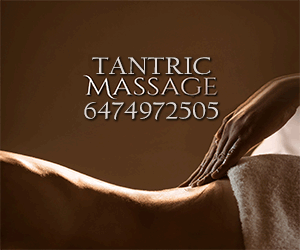O
Online Reporters
Guest
PUBLISHED : 8 Dec 2024 at 16:26


Chayada Prao-hom, a Thai luk thung singer, died after three times visiting a Thai massage shop in Udon Thani province. The hospital said the cause of death was associated with a blood infection and brain swelling. (Photo: Guitar Record)
A luk thung and mor lam singer died on Sunday morning after receiving three massage sessions, two of which involved neck massage, from a Thai shop in the northeastern province of Udon Thani.
Chayada Prao-hom of Guitar Record was pronounced dead from a blood infection and brain swelling at about 6am at a hospital ICU in Udon Thani.
Chayada’s boyfriend, whose name was withheld, said that after a performance on Oct 5 Chayada told him she had a backache and asked him to take her to a Thai massage shop in Udon Thani.
“After the massage she started to feel numb on half of her body and could not use her left arm. Later she could not move her whole body,” the boyfriend said.
On Nov 6, Chayada told her fans who were worried about her condition on her Facebook page that she went to the same massage shop three times in about a month. On the first two visits she had been treated in the same room by the same masseuse, who gave her “a neck twist”. On the third visit she had been attended to by a new masseuse.
According to her post, the Udon Thani native wrote that she only had a shoulder ache before she went to the massage shop. Two days after the first service, she started to have pain in the back of her head and took painkillers. A week later she had numbness in the arm.
Two weeks after the second service, she started to have so much pain and stiffness over her body that she was unable to turn over in bed.
“However, my mom is a masseuse and I studied Thai massage since I was a kid," Chayada wrote. "I love massage so much and so I don’t have any suspicion just yet. I thought this (the full body ache) was simply an effect from me getting the massage again.”
On her third visit she met a masseuse who had a “heavy hand” which left her with swelling and bruises over her body for a week. Even though she continued taking painkillers, she later experienced tingling in the fingers and felt both cold and hot at all times.
The numbness spread to her torso and intensified. Two weeks later she could not lift her right arm and at the time of her post she could use less than 50% of her body.
“I want my story to be a lesson for those who like being massaged a lot. I must recover. I want to work already,” Chayada wrote.
On Nov 18, the singer’s condition again worsened. She could neither move nor help herself and stayed in bed at all times.
Her boyfriend said he wanted to take legal action against the massage shop but admitted that he was not sure if there was enough evidence to do so.
Meanwhile, Arkom Praditsuwan, deputy director-general of the Department of Health Service Support (HSS), said department officials would check whether the massage shop that Chayada went to had been accredited and licensed to provide the service.
“What we need to examine is whether the massage service they delivered (to Chayada) was a correct practice and aligned with the standard pattern for Thai traditional massage," Mr Arkom said.
"At present, Thai massage has been applied by some practitioners using various techniques, thereby falling below standards or leading to a service that might cause injury.”
Prof Dr Thiravat Hemachudha, advisor to the College of Oriental Medicine, Rangsit University, warned that twisting or flicking one’s neck violently during neck stretching, exercise or a massage session could cause damage to the two paired arteries responsible for the blood supply to the brain: the carotid arteries and the vertebral arteries.
In particular, severing the latter would lead to stroke, a common cause of paresis.
“The danger will increase in tandem with the force of the twisting, flicking or circling one’s head. Repeating these activities for a long time will not only create problems for the nerves but also the blood vessels at the neck,” Prof Dr Thiravat said.
- Small
- Medium
- Large

Chayada Prao-hom, a Thai luk thung singer, died after three times visiting a Thai massage shop in Udon Thani province. The hospital said the cause of death was associated with a blood infection and brain swelling. (Photo: Guitar Record)
A luk thung and mor lam singer died on Sunday morning after receiving three massage sessions, two of which involved neck massage, from a Thai shop in the northeastern province of Udon Thani.
Chayada Prao-hom of Guitar Record was pronounced dead from a blood infection and brain swelling at about 6am at a hospital ICU in Udon Thani.
Chayada’s boyfriend, whose name was withheld, said that after a performance on Oct 5 Chayada told him she had a backache and asked him to take her to a Thai massage shop in Udon Thani.
“After the massage she started to feel numb on half of her body and could not use her left arm. Later she could not move her whole body,” the boyfriend said.
On Nov 6, Chayada told her fans who were worried about her condition on her Facebook page that she went to the same massage shop three times in about a month. On the first two visits she had been treated in the same room by the same masseuse, who gave her “a neck twist”. On the third visit she had been attended to by a new masseuse.
According to her post, the Udon Thani native wrote that she only had a shoulder ache before she went to the massage shop. Two days after the first service, she started to have pain in the back of her head and took painkillers. A week later she had numbness in the arm.
Two weeks after the second service, she started to have so much pain and stiffness over her body that she was unable to turn over in bed.
“However, my mom is a masseuse and I studied Thai massage since I was a kid," Chayada wrote. "I love massage so much and so I don’t have any suspicion just yet. I thought this (the full body ache) was simply an effect from me getting the massage again.”
On her third visit she met a masseuse who had a “heavy hand” which left her with swelling and bruises over her body for a week. Even though she continued taking painkillers, she later experienced tingling in the fingers and felt both cold and hot at all times.
The numbness spread to her torso and intensified. Two weeks later she could not lift her right arm and at the time of her post she could use less than 50% of her body.
“I want my story to be a lesson for those who like being massaged a lot. I must recover. I want to work already,” Chayada wrote.
On Nov 18, the singer’s condition again worsened. She could neither move nor help herself and stayed in bed at all times.
Her boyfriend said he wanted to take legal action against the massage shop but admitted that he was not sure if there was enough evidence to do so.
Meanwhile, Arkom Praditsuwan, deputy director-general of the Department of Health Service Support (HSS), said department officials would check whether the massage shop that Chayada went to had been accredited and licensed to provide the service.
“What we need to examine is whether the massage service they delivered (to Chayada) was a correct practice and aligned with the standard pattern for Thai traditional massage," Mr Arkom said.
"At present, Thai massage has been applied by some practitioners using various techniques, thereby falling below standards or leading to a service that might cause injury.”
Prof Dr Thiravat Hemachudha, advisor to the College of Oriental Medicine, Rangsit University, warned that twisting or flicking one’s neck violently during neck stretching, exercise or a massage session could cause damage to the two paired arteries responsible for the blood supply to the brain: the carotid arteries and the vertebral arteries.
In particular, severing the latter would lead to stroke, a common cause of paresis.
“The danger will increase in tandem with the force of the twisting, flicking or circling one’s head. Repeating these activities for a long time will not only create problems for the nerves but also the blood vessels at the neck,” Prof Dr Thiravat said.




































































































